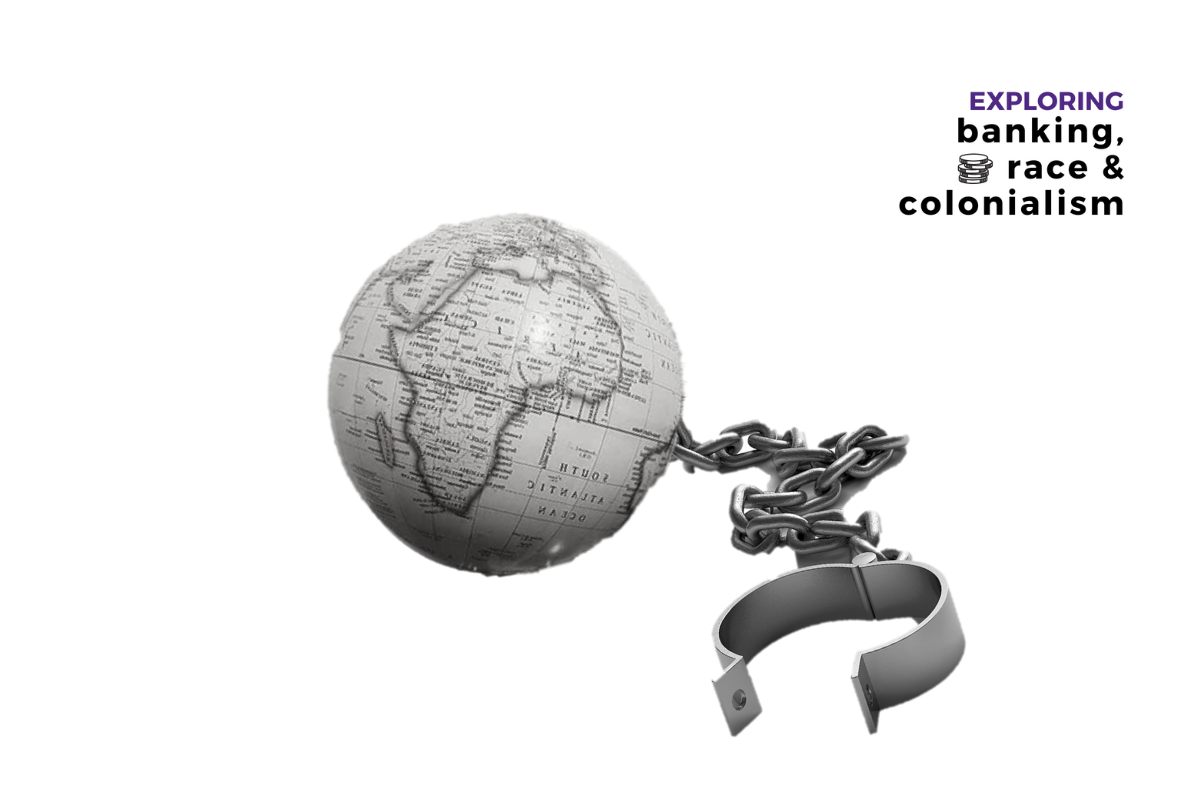
Finance and DemocracyUK
18 December 2025
As external debt repayments from low-income countries are forecast to reach between $2.6 and $3.4 trillion next year, the looming debt crisis in the Global South is set to become a debt catastrophe. This is not only a terrible echo of the speculative financing which laid the foundations for the slave trade, but constitutes a modern day form of colonialism, exacerbating unequal and racialised power relations.
“The origins of the debt arise from the origins of colonialism. Those who lend us money are the same who colonized us before. They are those who used to manage our states and economies.” – Thomas Sankara
While wealthy nations are being encouraged to spend on measures to combat Covid-19, poorer countries are expected to prioritise their external debt obligations, which is diverting public money during the pandemic into the hands of private creditors in London and New York. David Malpass, President of the World Bank (WB), has called for more ambitious debt relief for poorer countries including private creditors, but his words ring hollow as both the WB and the International Monetary Fund (IMF) have failed to do so themselves. Instead, the IMF has extended emergency loans, $102 billion so far to 81 countries, adding more debt onto existing burdens alongside damaging austerity measures. In response, a coalition of black civil society organisations and debt campaigners have called for full scale debt cancellation as a critical first step: demanding the Global South needs more than payment holidays, it needs justice.
So far, the G20, which includes 19 major economies and the European Union, agreed to freeze bilateral debt repayments for the poorest 73 countries through its debt service suspension initiative (DSSI) until the middle of 2021. But in reality this only covers 44 % of debt repayments for the 46 countries participating and any public money freed up, will only be drained by debt repayments to private creditors, including commercial banks and investment funds such as Blackrock. A report by Jubilee Debt Campaign and other debt campaigners, shows private creditors own nearly a third of the debt of low-income countries, this goes up to nearly 50% if lower-middle-income countries are included.
Since 2008, there has been a lending boom to low-income countries as private creditors reap huge profits on sovereign bonds issued by low-income countries often in a foreign currency, which are high-risk and high-yield. But the risks of default are plain to see, with high repayments and currency fluctuations making these the most damaging type of debt. This results in large outflows of public money from the Global South directly to banks in London and New York: an estimated $4.2 trillion in interest payments since 1980 – far overshadowing the aid received by these countries. Unless private creditors are compelled to participate in debt cancellation, low-income countries will be forced to spend more on debt repayments than healthcare or other development priorities (Chart 1 below).
Under our current system, the power of wealthy creditor countries and private investors has become absolute and sadly this is not a new phase. Rather it strongly echoes the financial system that underpinned slavery and colonialism, where “financial value was secured on human bodies”. Enslaved people were used as collateral to fund slave voyages and the expansion of sugar and tobacco plantations, and the profits earned saw London emerge as a world financial centre.
Today, the same exploitative dynamics continue to negatively impact poor BAME communities and the Global South. The global financial crisis of 2008 saw private investors leveraging the future debt obligations of ordinary people into tradable products. High risk subprime mortgages – which were disproportionately targeted at black and minority groups – were packaged into complex securities and endorsed as safe by ratings agencies to extract higher returns. Governments stepped in to bail out the banks while people lost their homes and livelihoods – and minority groups were the hardest hit. A financial crisis that started in wealthy countries had devastating effects in low-income countries. This is partly a reason for the unsustainable debt levels we see today. All this reveals, that being far from neutral, our financial system continues to reproduce systemic racial inequalities both within wealthy countries and between the Global North and Global South.
Now, private creditors are exploiting low-income countries that desperately need external finance to meet their development needs. They argue that debt forgiveness is not an option because low income countries will lose their reputation with investors and access to capital markets. But ultimately, today’s financial regime is designed to protect creditors’ structural power over that of borrowing countries in the Global South which are fast becoming debt colonies. While there is an overwhelming absence of anything that would limit the recklessness of private lenders or compel them to accept the loss of their own high risk gambles. Calls for reform to improve this system include demanding greater transparency from private creditors over the structure of debts in low-income countries, and new regulations that prevent the use of courts to sue countries unable to pay their debts. And, as we have argued before, the undemocratic voting practices within the IMF and WB – where decisions are made overwhelmingly by wealthier nations – needs to change.
It was the ideology of racism that was used to justify atrocities committed through the slave trade and colonialism, that sits at the root of a deep racial divide between the Global North and Global South. Beyond debt cancellation, it is the unjust dynamics of the global financial system that must come to an end. Breaking the absolute power of private creditors and the mechanisms that enforce unsustainable debt repayments on the Global South. We must transition to new models of international finance centred on racial economic justice.
This post is the third instalment in our blog series: Exploring Banking, Race and Colonialism. Read past pieces on why apologies from financial institutions for the slave trade are not enough and why we must go beyond financial inclusion here.
